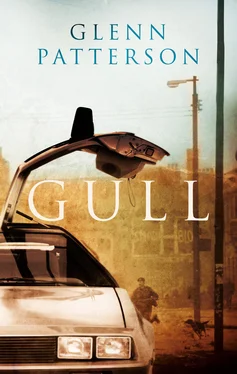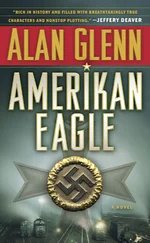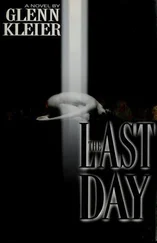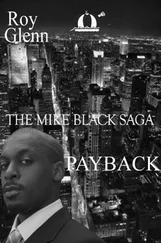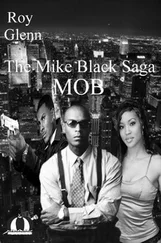‘Cunny funt.’
‘Cleaner mouths,’ said Liz.
The Honorary POGs walked around shaking their heads. ‘Wait till they see over there the state of the cars this lot are going to turn out.’
*
At the end of the first week of the expanded workforce one person in every three received an empty pay packet: system overload. One person in every three on the dayshift dropped what he or she was doing and marched on the administration block. Word of their coming and the reason for it had gone ahead of them — actually one in three of the people in the administration block were marching out to join them (You too, June? You too?) — and Randall responded by setting up a table in their path and installing Gardiner from wages behind it, pen in one hand, chequebook in the other.
You could nearly hear the brakes being applied as the crowd wheeled round the corner and saw him.
‘The bad news is the computer’s brain wasn’t big enough to cope with all the extra names,’ Randall said into the temporary silence. ‘The good news is Mr Gardiner here has a bigger brain than any computer outside the Space Programme, not to mention a good old-fashioned ballpoint pen.’ Gardiner showed them it. ‘So, if you could bear with us and form an orderly line…’
Which was the signal for a renewed free-for-all.
‘It’s OK! It’s OK! He has a spare pen in his jacket pocket, he’s not going to run out of ink — or money.’
It was like a scene from It’s a Wonderful Life — order was miraculously restored, and the ink didn’t run out, neither did the money, and — five, four, three, two, one — they reached the end of the working day, the first shift of it anyway, with everyone more or less content.
One of the other consequences of the doubling of the workforce was, it stood to reason (one nine-hundred-strong cross-section of the population — any population — being, morally speaking, the same as another), a doubling of the instances of petty larceny.
Bill Haddad showed up in Randall’s office one morning fit to be tied. He had taken a cab the night before — black, of course, it being next to impossible to find anything more regulated — and the radio in the dash — he recognised it straight away — it was one of theirs.
Randall suggested it might just have been very like one of theirs.
Not very like, Haddad insisted: the exact radio, a Craig. Who else used Craigs here? Anyway, he had just been down to the stores to double-check: absolutely no doubt. He jabbed Randall’s desk with his middle finger. ‘We are going to have to put extra people on the gates, introduce random searches.’
‘Slow down, slow down,’ Randall said. ‘I share your concern, obviously, but this isn’t a prison, it’s a factory. Things go missing now and again.’
He was thinking of the tale he had heard — one cigarette in length — down at the Conway’s security hut, about the man who left the shipyard every evening with a jacket draped suspiciously over his wheelbarrow, and every evening this one foreman would pull him over and look under the jacket and find nothing. Only when the pair had retired and met on the street did the labourer put the foreman out of his misery by telling him what he had been pilfering all those years: wheelbarrows.
Haddad’s finger was still pressing down on his desk. He didn’t look as though he was in the mood for stories.
‘John doesn’t hold with searches,’ Randall said simply.
‘Why does that not surprise me?’ said Haddad, then changing tack, ‘Have you any idea what those radios are worth?’
‘I know what every single thing in this factory is worth, and I know what our workers are worth too, and it’s more than a toolkit or a couple of pairs of coveralls, or even a Craig radio.’
‘That’s a very fine sentiment, I’m sure,’ said Haddad and leaning all his weight on that single finger pushed himself upright, ‘but you forget that until we start to turn an actual profit the money that paid for those things isn’t John’s and it sure as hell isn’t yours.’
It was bad enough having to take one lecture from Haddad, but to have to take another, just a few days later and this time have to admit that he had a point…
There had been a spate of bomb scares, middle of the night: middle of the night shift .
Three times in as many weeks Randall had been woken by a phone call telling him to get down to the plant double-quick. (On the second of these occasions he had been surprised to see Liz among the workers standing at the assembly point, though with the threat of an explosive device in the building this surprise was — un surprisingly — short-lived.) It was the police who pointed out after the third alert had been declared a hoax that all three calls had been made not just on the same day of the week — Wednesday — but at the same time of night, exactly a quarter after two. A couple of days later they confirmed what had begun to seem obvious: that all three calls had been made from inside the assembly shop, from one particular phone, near the Engine and Gearbox Storage area, whose calls — and the list of them was staggering: Australia and everywhere — for some reason did not appear to be going through the plant’s own operator system. With the cops to back him Haddad was not about to be dissuaded. Never mind the bad press if the story was to get out, this was effectively sabotage, this hurt everybody: they would have to mount a stakeout.
Under cover of running repairs to the ceiling a tiny camera was installed high on the wall facing the phone. Randall did not even bother going to bed the following Wednesday, but killed the time until half past midnight (Erroll Garner Concert by the Sea : not one he would be sorry to return) then took himself down to the factory.
They had set up the monitor in a corner of Stylianides’ office, its bluish greys the only artificial light in the room. There were plates of sandwiches under Saran wrap on the desk, two large thermos flasks of coffee and half a dozen mugs: one each for Stylianides, Haddad, Randall (Don had been more than happy to delegate) and the three cops who had arrived a little ahead of Randall wearing boiler suits with the name of a pest control company on the back.
‘You’d be amazed the places these will get you into,’ the cop in charge said. ‘I’ve had people shake my hand and then seconds later they’re on the floor with the cuffs on them.’
At two-fifteen precisely a figure appeared, a man, moving at improbable speed. They all sat forward at once, heads almost meeting in an arc around the monitor. (Mingled breath of coffee and cigarettes and egg salad.)
‘How tall is that guy?’
‘Wait a second, is he…?’
‘What does he have on his feet?’
‘He is: he’s roller-skating.’
He was, and wearing a child’s Stan Laurel mask. He skated out of the picture and a few seconds later skated across it in the opposite direction, and out again. When next he appeared he was balancing on one leg, changing over then to the other on which he performed a passable pirouette before exiting a final time backwards, thumb to Stan Laurel’s nose and fingers wiggling.
Randall didn’t know about the rest of them, it was all he could do to stop himself applauding.
‘You don’t suppose, do you,’ he said instead, ‘he knew he was being watched?’
*
Liz never heard the words counter-surveillance used, but she did on several occasions overhear conversations to the effect that you had to keep an eye on the bosses to make sure that they never found out they weren’t the ones running the factory.
The bomb scares were a breach of that protocol as much as anything else and, worse still, they had drawn attention to the open phone line next to the storage area whose existence to that point close on two thousand people had managed to keep secret from a couple of score.
Читать дальше
